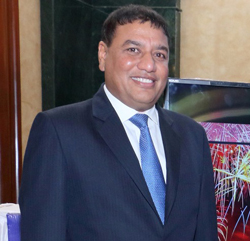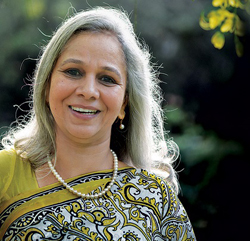All eyes on Budget 2018

With the Government set to present its fifth and the last comprehensive Budget in February 2018 before the polls of 2019, the industry, particularly the IT & Mobility industry has its hopes high. A common belief is that the Government is likely to come out with a populist budget that would tie all the loose ends and something that will provide relief to the “aam aadmi”. The budget is also going to be a significant one for the simple reason that, it will be the first budget after the revolutionary GST law was implemented last year. The Gujarat election results will also play a part in the formulation of this year’s Budget.
From the ‘Make in India’ perspective, the budget needs to make it easier for companies to shift their manufacturing into India. Right now neither the infrastructure is in place nor there is 100% clarity in the rules. There need to be some clarity in the taxes which can promote trust and allow people to invest into manufacturing. The same goes with the Digital India initiative that needs to have a continued focus on more technology adoption to encourage digitization and shaping the IT infrastructure and the Government needs to keep this in mind this while drafting its budget for the year.
In terms of digital payment, the government must try to address demand-side concerns and continue to incentivise digital payments and their providers to help the ecosystem gain greater adoption and synergy through the budget. While digital payments are now projected to supersede cash by 2022 according to industry reports, this momentum in the digital payments ecosystem will be needing more policy support to be sustained.
What the industry expects?
 Alok Dubey
Alok Dubey
CFO
ACER
“With the introduction of GST, year 2017 has been an eventful year across economies and industries. For the year 2018, we are optimistic that the union budget will focus more on Digital India initiative in order to shape the IT infrastructure and increase adoption of technology to encourage digitization. We are also expecting that the government may slash corporate tax for the larger companies in the upcoming budget. It may/should help Indian companies to compete globally and attract more investments to the country. Besides this, we are also expecting that the budget will be centered around lowering personal income tax slabs, and tax savings schemes which would lead to higher disposable income and directly benefit the normal taxpayer.”
 Sanjay Kumar Kalirona
Sanjay Kumar Kalirona
CEO & Director,
COMIO
“India is currently the fastest growing smartphone market in the world. The upcoming Union Budget should support the growth of this industry by smoothening GST (from 12% to 5%) and offering tax reductions, especially towards the budget category as it will make mobiles much more affordable for the consumers. There is an enormous scope for India to strengthen its manufacturing capabilities and create a self-sufficient eco-system for component manufacturing. The incentives provided by the government will help build India as a manufacturing hub, complete the mobile supply chain and further support the ‘Make in India’ vision.”
 Vivek Agarwal
Vivek Agarwal
Co-founder
M-tech Informatics Ltd
“The upcoming Union Budget 2018 will be a significant one as it will be the first budget after a bold economic measure like GST has been implemented. We are likely to witness a whole lot of business and economy friendly measures being announced. Thanks to the government’s Make in India initiative which encouraged local manufacturing and augmented production, India has emerged as the second largest mobile phone market in 2018. As the country eyes the top position, the mobile phone industry expects the government to maintain and introduce more favourable policies for domestic manufacturers.”
 Rajan S. Mathews
Rajan S. Mathews
Director-General
COAI
“In the upcoming Union Budget, telecom sector is eagerly waiting for some breather. The telecom sector is the biggest supporter of indigenous manufacturing. However, till such time as quality products at a competitive price are available in the country, the government needs to rethink its stand regarding customs duty on equipment, to ensure timely roll-out of networks. The issue of tax withholding on discounts extended to pre-paid distributors needs immediate attention. It is important to understand and appreciate that the discount extended to pre-paid distributors is not a commission, as these distributors do not act as agents of telecom companies.”
 Upasana Taku
Upasana Taku
Co-Founder, MobiKwik
“The Union Budget for 2018-19 must announce robust incentive plans for women so that they can harness the potential of new digital technologies and evolve a large ecosystem of entrepreneurs. Comprising nearly half of the population, women can bring about a transformational change by contributing to innovation, inclusive development and nation building.”

Bipin Preet Singh
Founder & Chief Executive Officer - MobiKwik
“The Union Budget for 2018-19 must announce measures to accelerate the pace of India’s migration to digital platforms. People in urban and rural areas should be able to easily access financial services like loans and investment products on their smart phones. The benefits of digital services value chain must percolate to the un-banked and under-banked population as the country transforms into a knowledge-driven economy.”

Rajiv Bhalla
Managing Director - Barco Electronic Systems on Smart Cities and Manufacturing
“With the Smart Cities Mission being a priority for the government, we can expect increased capital allocation towards projects in this direction in the budget announcement with a vision to develop the essential smart infrastructure. As India makes its way towards becoming a digital-first economy, we can also look forward to a sustained push aimed at enabling more businesses to make a seamless digital transition.
It would also be interesting to see what financial, infrastructural, and regulatory provisions are made for the ‘Make in India’ initiative. For India to become a global manufacturing hub, the government will have to ramp up its efforts to provide essential support for the ‘In Country, For Country’ companies. Creating an environment where businesses can thrive will encourage more players – both indigenous and international – to explore the possibility of manufacturing within India.”

S. Sundararajan
Executive Director, i-exceed
“Ours is a country that has realized the significance of digitization and acted on it. The demonetization act set the wheels rolling in a big way for Digital India. The growth of digital payments has accelerated since then. However, there is still a large section of population, especially from rural areas, who are unable to get the best out of these digital initiatives. Fintech players are coming up with interest innovations to support regional languages, voice based transactions and AI powered natural language processing to facilitate financial inclusion. With the 2018 fiscal budget, we expect the government to take more active steps in encouraging such innovations.”

Rakesh Dugar
CMD- Mitashi Edutainment
"Post GST, the budget has lost a lot of its importance as a large part of the expectations from the budget were related to Indirect taxes, we think that the government will go for a modest / populist budget to ensure a balanced / positive sentiment before the elections. The budget needs to make it easier for companies to shift their manufacturing into India, right now we see a lot of companies scrambling to shift their base without the infrastructure in place or 100% clarity in the rules. We will need long term clarity in the taxes which can promote trust and allow people to invest into manufacturing, we believe India has the capability to become a major export hub for consumer durables but needs good and stable policies to ensure that we can explore this potential."

Dr. Rishi Mohan Bhatnagar
President, Aeris India and the Chairperson of The Institution of Engineering and Technology - IoT panel for India
“As far as IoT deployments are concerned devices form a key input. To bring down capital investments, we need seriously look at lowering tax on hardware from 18 to 5 percent. This will give a fillip to IoT projects in the country. Another area that needs attention is the need to rationalize the spectrum license fees so that more MVNOs can enter and reduce connectivity bottlenecks. Banks should look at relaxing their norms for start-ups (as a subsidy or by offering soft interest rates for loans). This will improve access to working capital for vendors and eco-system participants involved in IoT projects.
In order to provide a steady impetus to initiatives such as Make in India and Digital India, our manufacturing sector needs to ramp up. Towards this, we need to work towards providing tax sops and liberalize norms to ensure greater access to working capital. Nowhere is it more relevant than in the field of IoT as we are right now in the initial adoption stages and this is the right time to set the right vision and goals.”

Ravi B Goyal
Chairman & Managing Director, AGS Transact Technologies
“The last few quarters have been transformational for the FinTech and Banking Payments Services industry in terms of increased governmental policy push such as Aadhar pay, UPI and others. These policy initiatives have not merely encouraged consumers onto digital platforms but have also promoted financial inclusion. However, it would be appropriate to point out that cash would still co-exist along with increased push towards digitization. As cash continues to be the preferred mode for transactions, especially in semi-rural & rural areas, we strongly believe that the government’s pro-business policies will usher in a new era of prosperity providing stimulus to cash and digital payments alike.
As India’s leading end-to-end payment solutions provider, our ardent belief is that the ‘Make in India’ initiative holds huge potential for spurring economic upliftment of the people and enhancing national development.
Furthermore, the forthcoming budget should announce measures to upgrade digital infrastructure, especially with regards to the protection of data stored online so that consumer confidence is enhanced.”

Swetang Vin
Corporate Vice President and Regional CFO – AMD
“Supply of goods and services to units registered under STPI should be GST exempted. Entities registered as STPI units have fuelled the economy for almost a decade by bringing in convertible foreign exchange into India and have proved themselves as partners the nation building. Though there are schemes supporting the STPI units, claiming GST/Service tax refunds for the unutilized credit is not an easy task. Amendments in the Law exempting levy of GST on services rendered to STPI would enable release of unwarranted pressure created on the working capital.”

Gaurav Hinduja
Cofounder - Capital Float
“For the Budget 2018-19, we hope that the government will continue to push digitization of financial services and encourage consumers to use digital platforms for transactions. Initiatives such Aadhaar and UPI provide a good opportunity for banks, insurers, and fintech players to expand India’s efforts towards financial inclusion. Another area of focus should be reducing the cost of capital for the MSMEs by improving lenders access to low cost funding sources such as MUDRA & SIDBI and relaxing securitization norms.”

Aniketh Jain
CEO & Co-Founder of Solutions Infini
"This year budgets are going to be significantly crucial as they happen post the year of notable reforms like Demonetization, GST implementation and insolvency & bankruptcy policy. This year budget also marks significant impact on the way our ecosystem functions. Bringing in policies that foster growth in employment, direct tax reforms, creating more clarity on the way bitcoin operates and its significance on Indian economy can be familiarized for smoother functions. The last year's budget has taken various initiatives to improve the ease of doing business, controlling inflation, digitizing the financial and individual records. Increase in FDI (Foreign Direct Investment) is a pragmatic initiative that has opened up investments from various sectors."

Nikhil Rungta
MD - Intuit India
“In the upcoming budget, we expect increased incentives and budgetary allocation to encourage the flow of credit to SMEs. We are also hoping to have a business environment with minimum regulation and policies helping SMEs expand, grow, and go digital. For start-ups, we want the budget to foster an ecosystem to help them access capital easily and make investments in the segment lucrative. In the last year, while GST has been hailed as a much-needed overhaul of the indirect tax system, many small and medium sized businesses (SMBs) across sectors - services and product alike - are still adapting to the new tax regime. Of the 51 million SMBs present in the Indian market, around 20 per cent are somewhat digital-savvy.”

Satya Prabhakar
Founder and CEO, Sulekha
“Budget 2018 can help MSME’s in these two aspects -
* Help provide uncollateralized credit: While lot of fintech organizations promise small-ticket personal loans, the ability to provide loans in the region of Rs. 2 to 10 lakhs using little collateral is beyond the ability of start-ups. The Govt. can aid in scaling up business loans for service MSME’s.
* Reducing or removing GST on promotional spends: Most MSME’s may come under the GST composition scheme that has business turnover limit of Rs. 1.5 crores currently. Budget 2018 can look to see if marketing and promotional spends done by such entities are fully exempt from GST. This will help them to further invest and grow their business.”

Anand Ramachandran
CFO, TechProcess Payment Services (Part of Ingenico Group)
“Today, a small merchant in India already enjoys one of the lowest cost structures in the world for accepting digital payments. However, merchants continue to be biased towards cash because of the tax impact (direct and indirect) of digital transactions, which leave a trail. Government must consider a preferential tax rate for small businesses with majority (say 50%) income received through digital channels. This will eliminate the barriers cited by small businesses, expand the tax base, and accelerate the gains of demonetization. Government may also consider tax breaks for fintech companies which are making significant investments in the high volume, low margin digital payments market to provide innovative solutions to merchants and consumers.”

Ramki Gaddipati
Co-founder and CTO - Zeta
“In the past two decades, we have not seen an increase in various allowances offered to the salaried population in the country. For example, medical expenditures are exempted only to the tune of Rs. 15,000 per annum and children education expenses to the tune of Rs.100 per month. These numbers have remained unchanged for the past several years, even though the costs in the country have risen many-fold during the same period. It would be of great benefit for the salaried people if the Union Budget 2018 considers increasing the limit of such employee tax benefits.
Also, in line with the government’s vision of promoting digitisation in India, it becomes imperative that it is made easy for people in the lower socio-economic strata to become a part of this revolutionary change. For example, people without a PAN number, still have to rely on paper-based Form-60 to complete the account creation process. So, I would request the government to work out a strategy to manage this digitally.”

Vinay Pradhan
Country Manager, India Skillsoft
“This union budget will be the first, post implementation of the GST regime and expectations are running high. We are expecting some growth driven policies which would act as a catalyst for the Skill India program and a sustained push towards a digital-first economy. With constant technological innovation; it is a challenge to keep up with the needs of an agile, digitally literate workforce. In order to ensure that the people are prepared to take on this digital revolution, it is imperative to empower people with the right set of skills which will require the creation of technological infrastructure and budgetary support. With this budget, the Government should encourage increased participation by the private sector in this skill development initiative and provide tax exemption for investments made in the Learning and Development sector.”

Priya Mahajan
Head of ASPAC Public Policy & Regulatory Counsel, Verizon Enterprise Solutions
“The Government of India has made great strides to foster the growth and development of the Indian IT and telecommunication sector, strengthening the economic and digital transformation in the country. As the industry grapples with competition caused by digital disruption, we hope that the Union Budget 2018-19 will take into consideration key issues such as reforms in the Telecoms regulatory framework via industry consultation as part of new National Telecom Policy -2018 deliberations to promote Legal certainty, predictability and global consistency which will further foster Innovation & Investments in the IT and Telecom Sector.
The key to success of the Digital India initiative also lies in making the necessary reforms to the tax structures including GST that have played an integral role in developing the country’s economic prowess.”

Aloke Ghosh
CFO - Infogain
“2018 will be a year of growth and buoyancy for the Indian economy. Last year’s budget did not see much in terms of provisions for the ITeS sector and the demands of the sector especially wrt software products and services were left out. This year disruptive technologies and digital services like Artificial Intelligence, Machine Learning, and Robotics Process Automation will drive growth creating a huge demand for skill development. We are expecting sanctions that will aid to further R&D in India and the streamlining of taxes post the GST implementation to facilitate ease of doing business.”

Avneet Singh Marwah
Director and CEO - Super Plastronics Pvt. Ltd. (Kodak HD LED TV India)
“Last year the consumer electronics industry saw a decline by 10-15% due to 2 major reforms (GST & Demonetization). However, despite the initial decline, we welcome the reforms introduced by the government. But televisions have been put under 28% GST, therefore we saw a larger decline in sales in Q3. As a result offline trade has taken the maximum hit and we expect GST on television should come down to 18%. If the government does not consider a reduction, we may see jobs cut down by 35%.”

Shrenik Bhayani
General Manager, Kaspersky Lab (South Asia)
"Looking at the current situation and the government initiatives like digitization in India, it is expected that the budget which is soon to be announced will focus a lot more on creating funds to battle the growing concern of cybersecurity in India. Cybersecurity according to me deserves to be in the top 5 list of concerns in India."

Suman Reddy
MD - Pegasystems India
“The industry is still reeling under the APA (Adv Pricing Agreement) leading to confusion around the double taxation component of transfer pricing. We are looking for further clarity on this. Further, the development centres are looking for a more favourable deduction of Section 35 (2AB) to further India’s image as an R&D capital. On the startup fronts, local governments have set the precedent for bolstering innovation and entrepreneurship, and conditions like angel tax for domestic investors being higher than foreign investors must be relooked at. The government can also heed to IT association’s requests to set up a more central initiative around new tech reskilling, as there are initiatives being undertaken by organizations who find it feasible.”

Sahil Chopra
CEO and Founder, iCubesWire
“The announcement of Union budget is just around the corner with discussions & debates being conducted around it. There is hush-hush regarding the assumptions when everyone is expecting a positive release. As far as digital is concerned, besides the allocation of budgets on Digital Infra Development, there is a need to initiate a few reforms. Digital is the fastest growing sector of India & should be highly benefitted from the Union Budget.
As per my understanding, budgets should be allocated to PSUs for investing in digital marketing. This will lead to a win-win situation as for the organization the digital mediums will help gain recognition & support. Digital agencies will spread awareness & educate the audience about the benefits of the organization. Even the digital organizations paying taxes dutifully should be recognized well & given the right opportunities to flourish.
Even on a personal level, the entrepreneurs who are platinum taxpayers should be given certain advantages as a reward for their contribution towards the nation. Any individual paying heavy taxes on time should be entitled to such benefits which could be in the form of a card similar to the other identity cards we have. This will not only be a welcomed move, but it will also ignite the zeal among the others to be a part of that category thereby benefitting the country.”

KK Mookhey
Founder & CEO, Network Intelligence
“In last year’s budget, the Finance Minister announced the setup of CERTFIN. While the initiative was much needed, we hope to see much more specific action points in the 2018 budget that will align with the digital transformation journey that the country is undergoing.
The 2018 budget must support development in the cybersecurity infrastructure by focusing on people, process & technology. The expectations are for benefits to local organizations for a much needed push to increase qualified cybersecurity professionals, set up local compliance across all sectors for Data Security & to waive off taxation for homegrown cybersecurity technologies.”

Pratibha Advani
CFO – Tata Communications
“According to several reports the world economy is slated to do well this year with a predicted global output of approximately 3%. Amidst synchronized global growth across developed economies and emerging markets India is expected to be delivering a 7% [1] growth rate in the coming fiscal.
While these predictions portend good tidings for the Indian economy, a reduction in the corporate and dividend tax rate and the abolition of all surcharges/cess etc would go a long way in bolstering organizations and helping them build a significant competitive edge in the global economy.
A reduction in the Minimum Alternate Tax (MAT) rates would also be very welcome. The funds saved have the option of being ploughed back to expand capacity and production thereby propelling the growth engine further.”

Keith Martin
Head, Asia Pacific, Corporate Business, F-Secure
“Union Budget 2018 has to take many positive steps towards aiding India's smooth transition into a digital economy. With the constant sophistication of the cybercrime owing to the massive digital advancement and the government stressing towards digital payments, we could expect an overall digitization budget following the significantly intensifying number of cases of cybercrimes and data breaches. We can certainly expect cybersecurity to be a key agenda for the government this year.”

Rajesh Rege
Managing Director - Red Hat India
“Government led programs like Digital India, Make in India, Smart Cities etc. are triggers for a boost in the country’s economy. These campaigns have opened a plethora of opportunities for IT industry as well. To truly realise the potential of these game changing initiatives, it is important to harness the power of collaboration and by extension, Open Source. In this budget, we look forward to continued focus on accelerating these initiatives using Open, Agile, Secure and Scalable solutions.”
See What’s Next in Tech With the Fast Forward Newsletter
Tweets From @varindiamag
Nothing to see here - yet
When they Tweet, their Tweets will show up here.






























